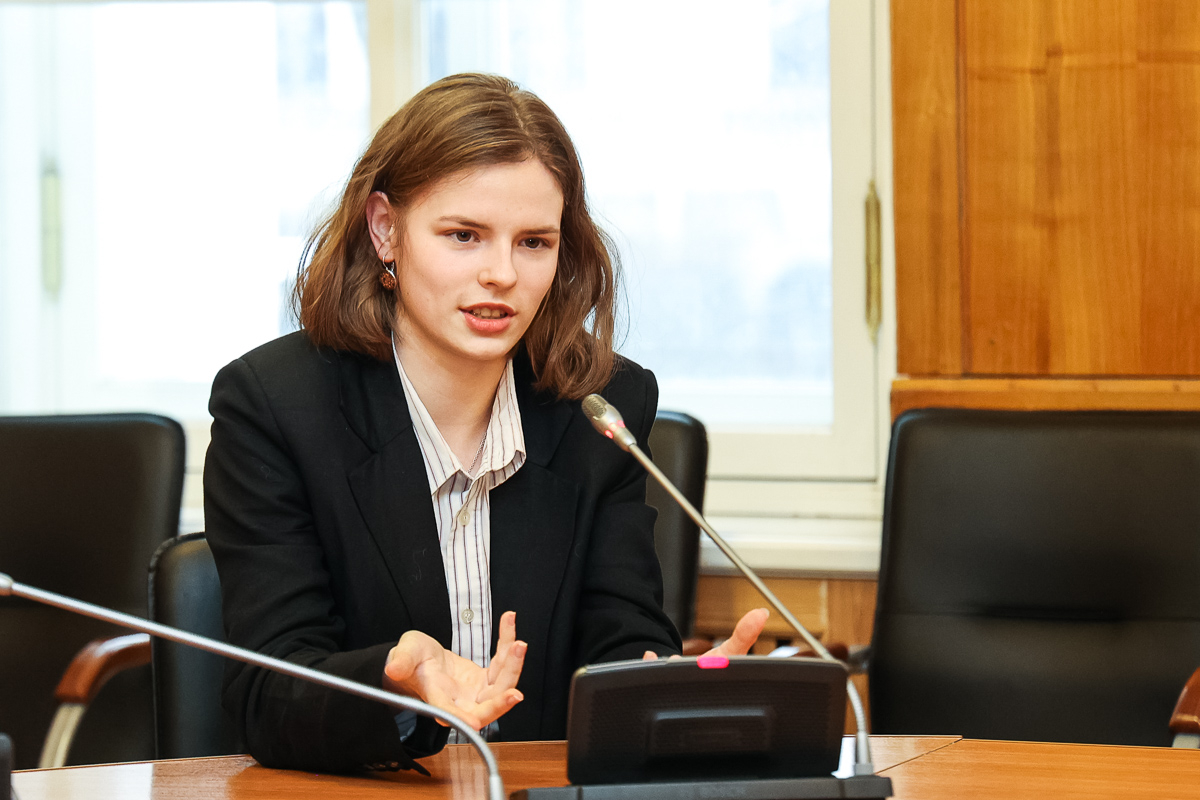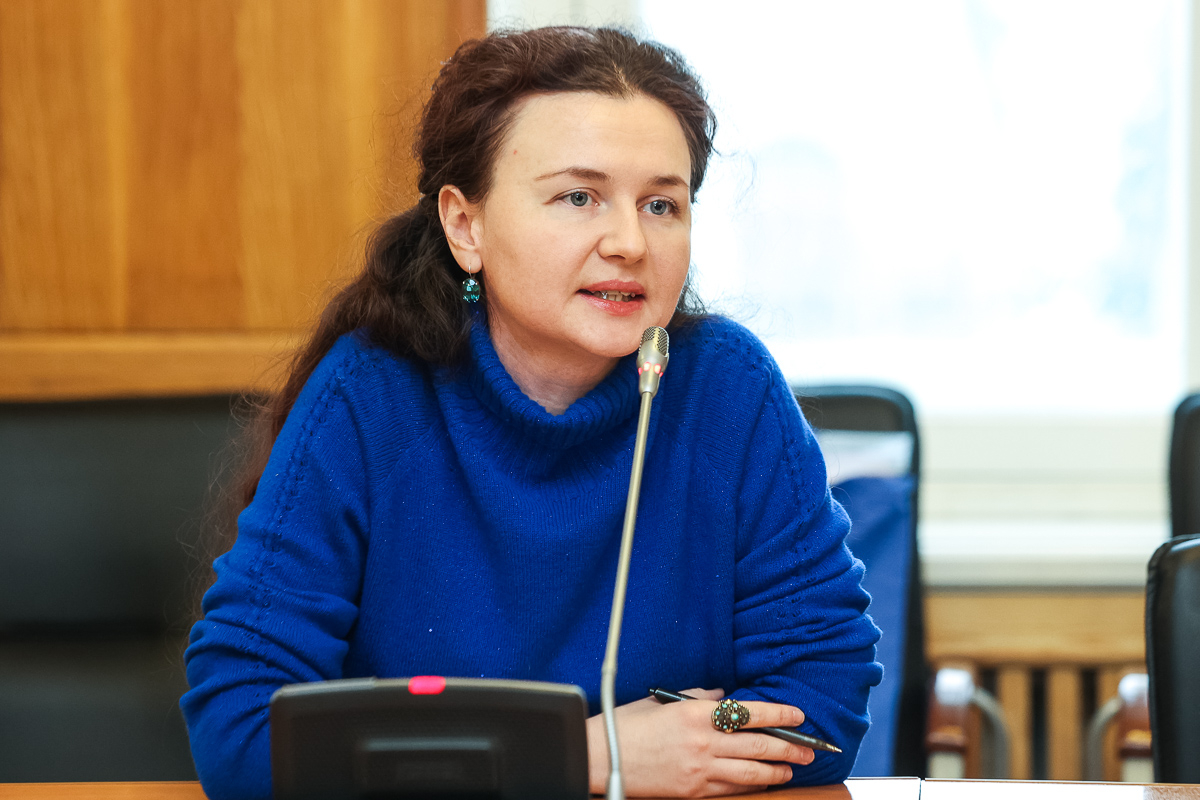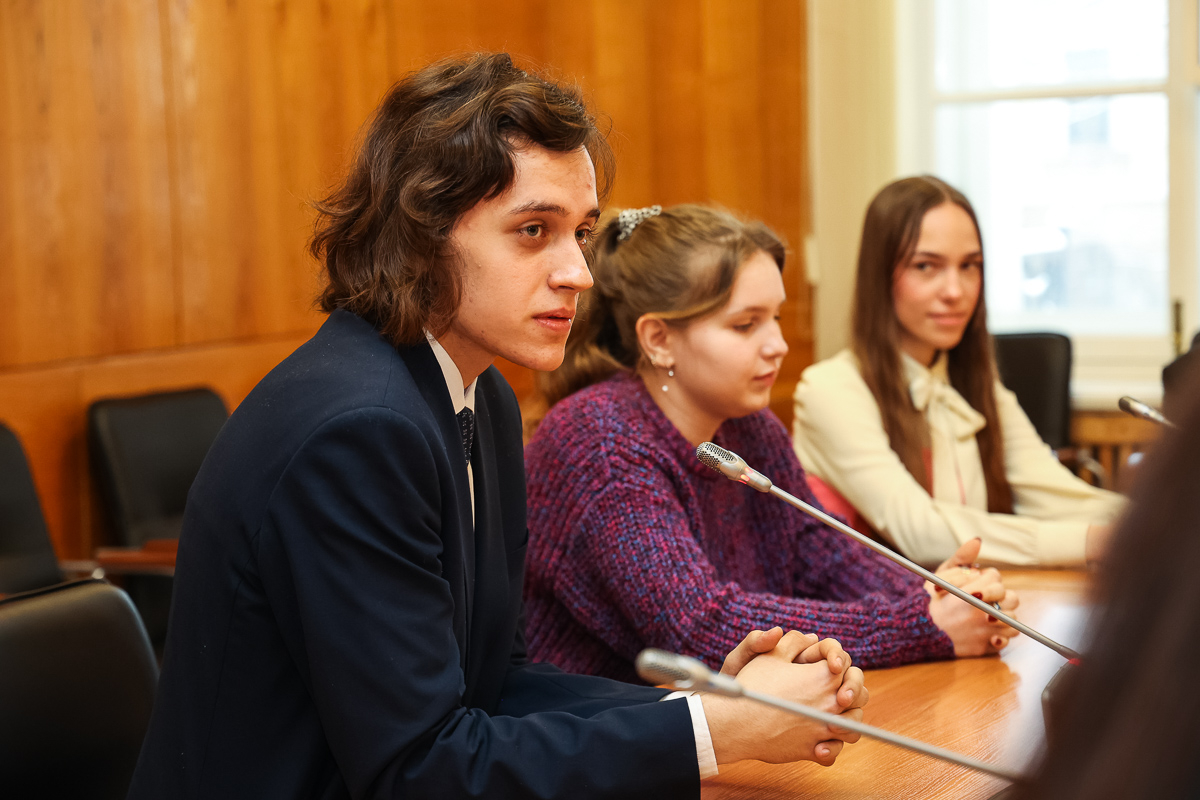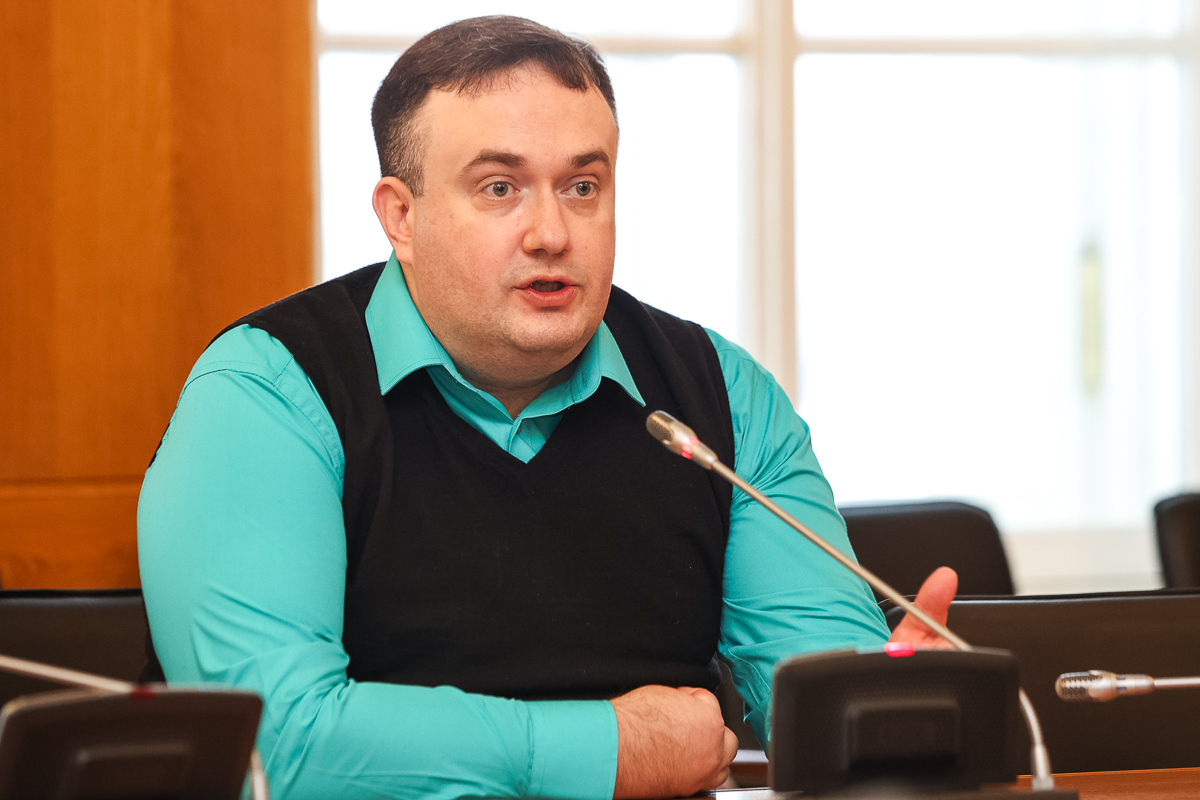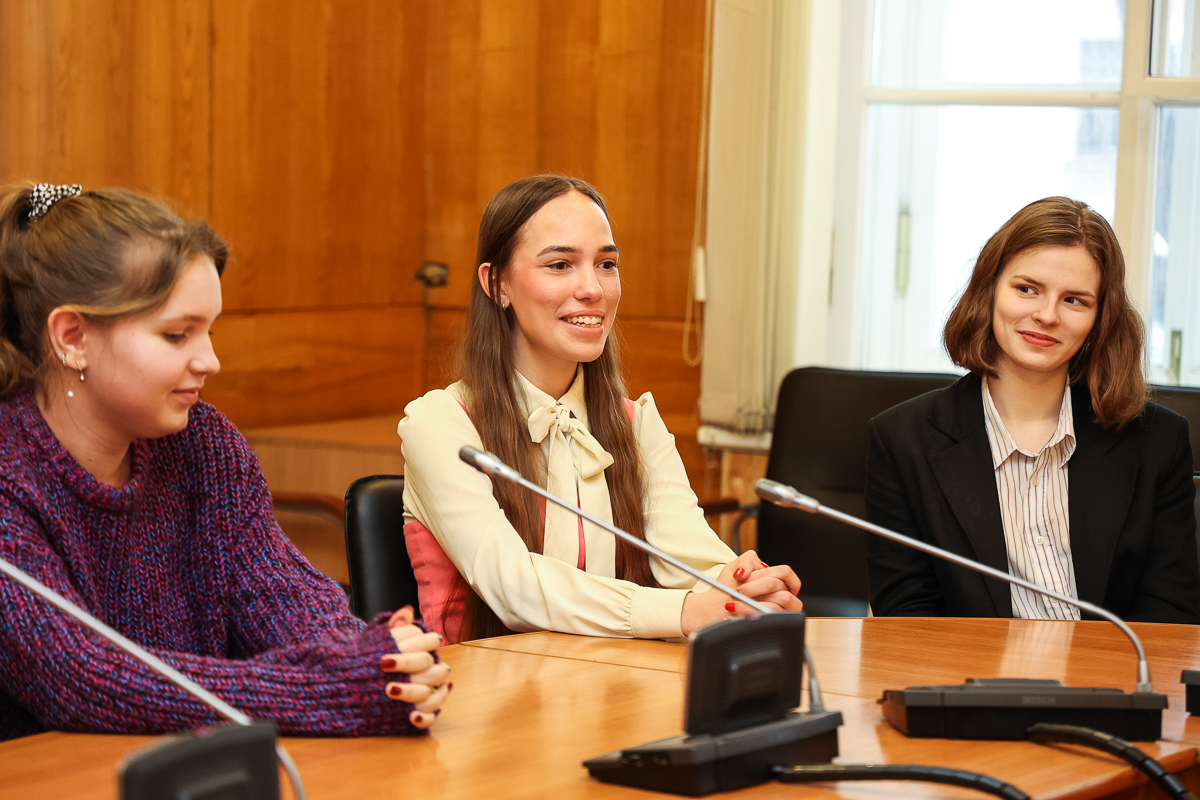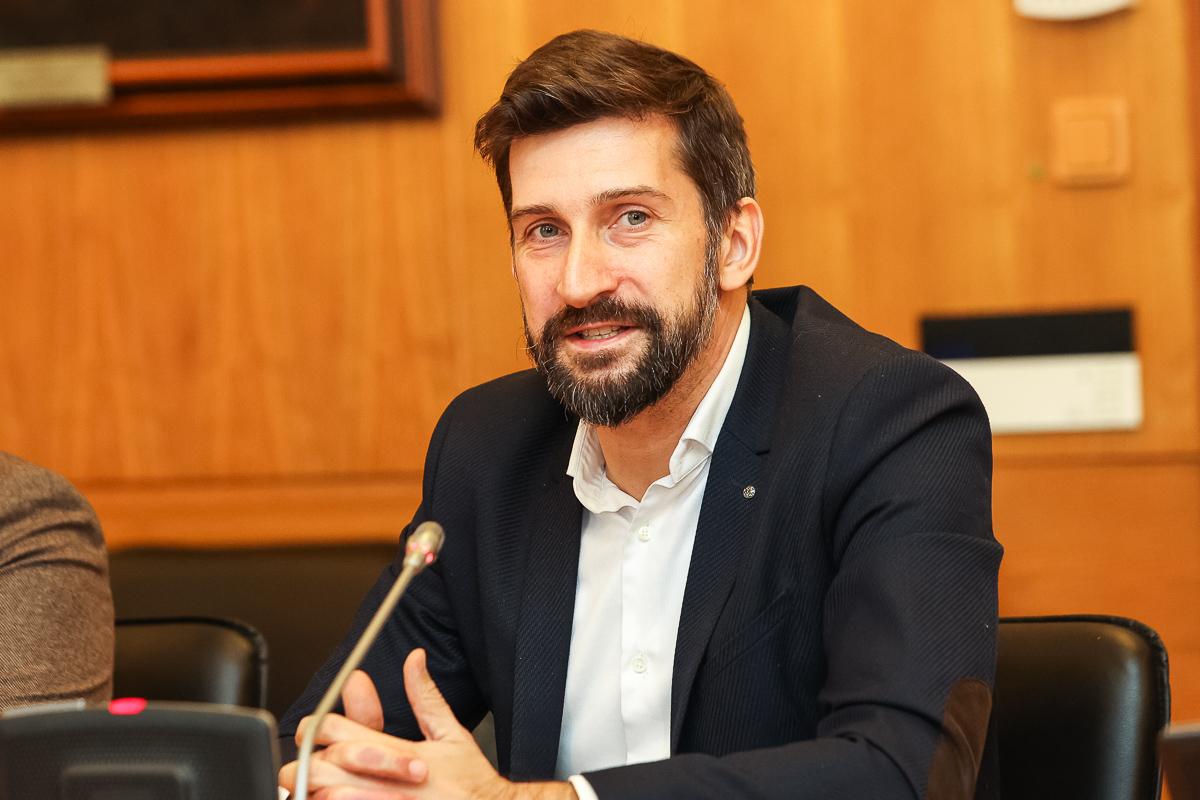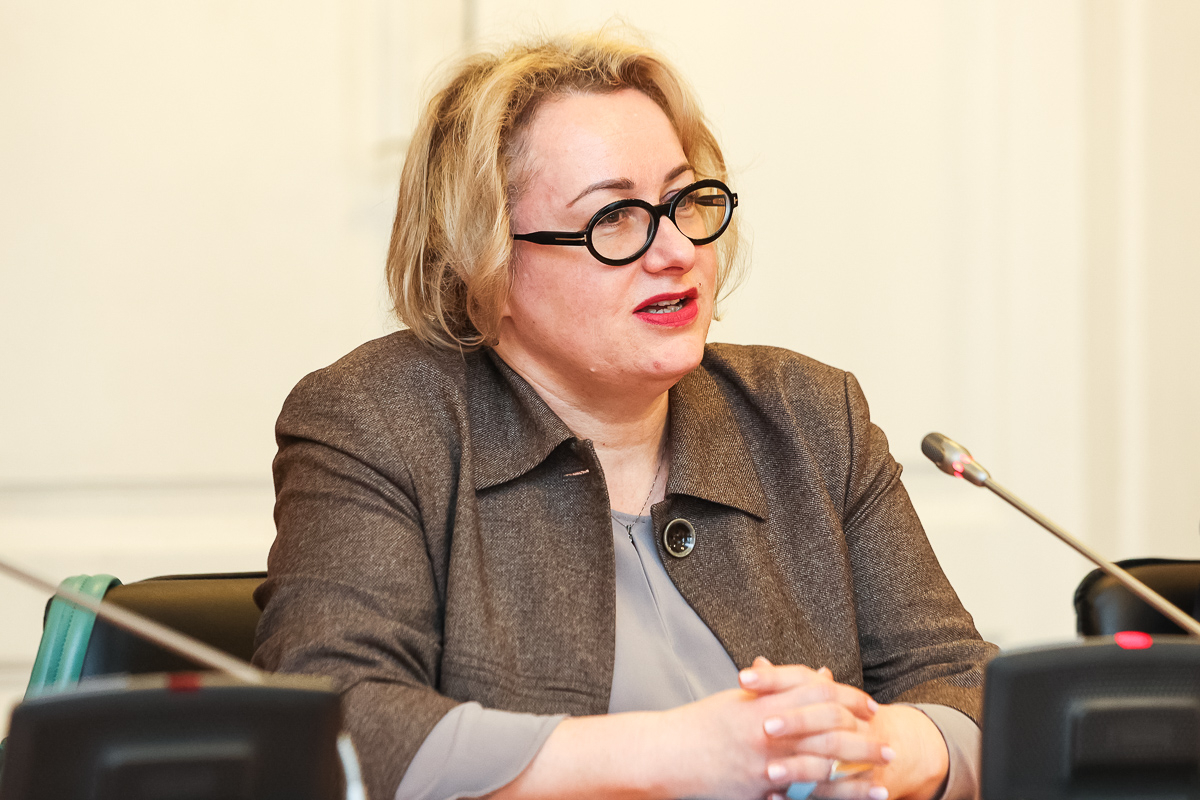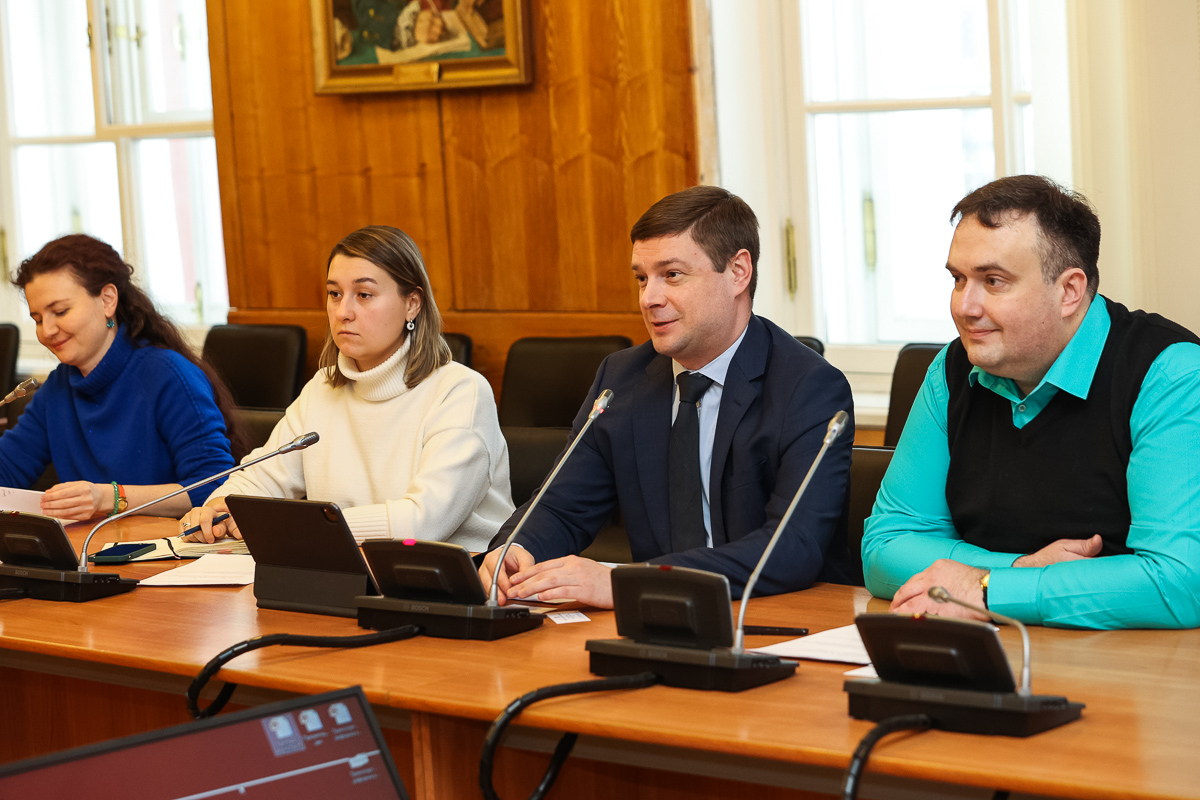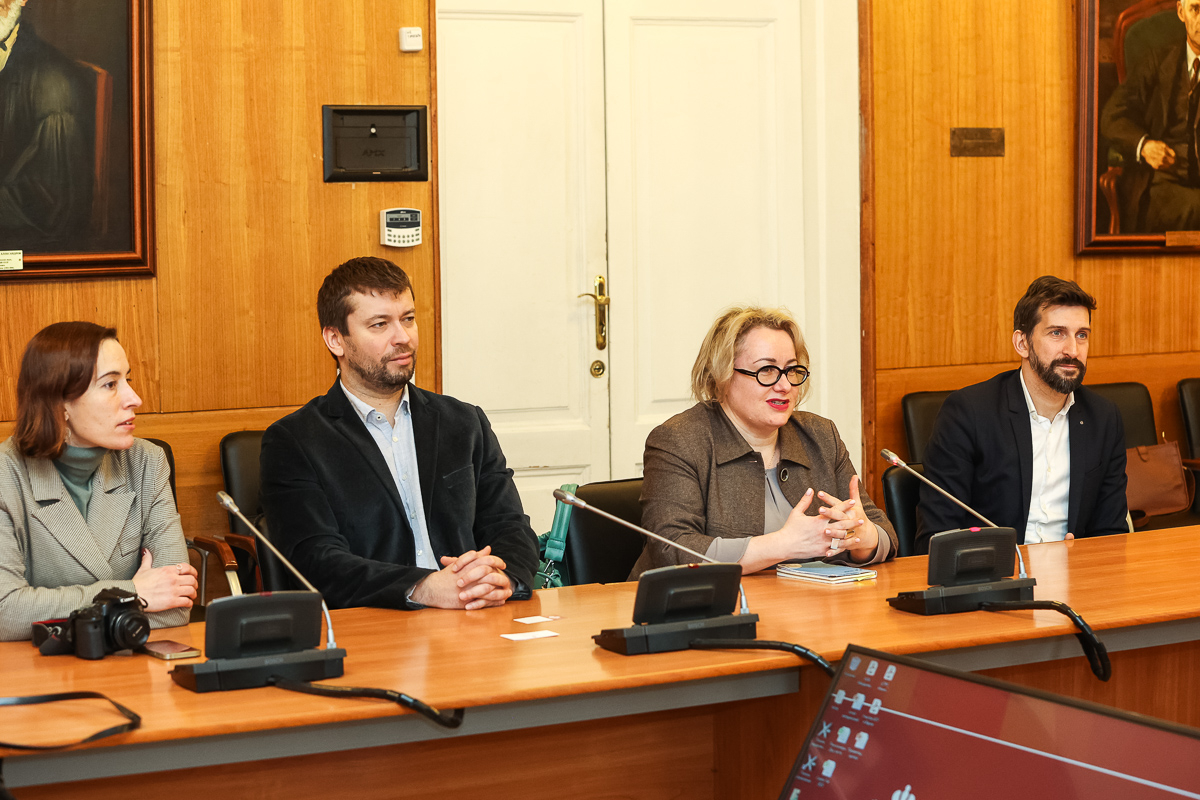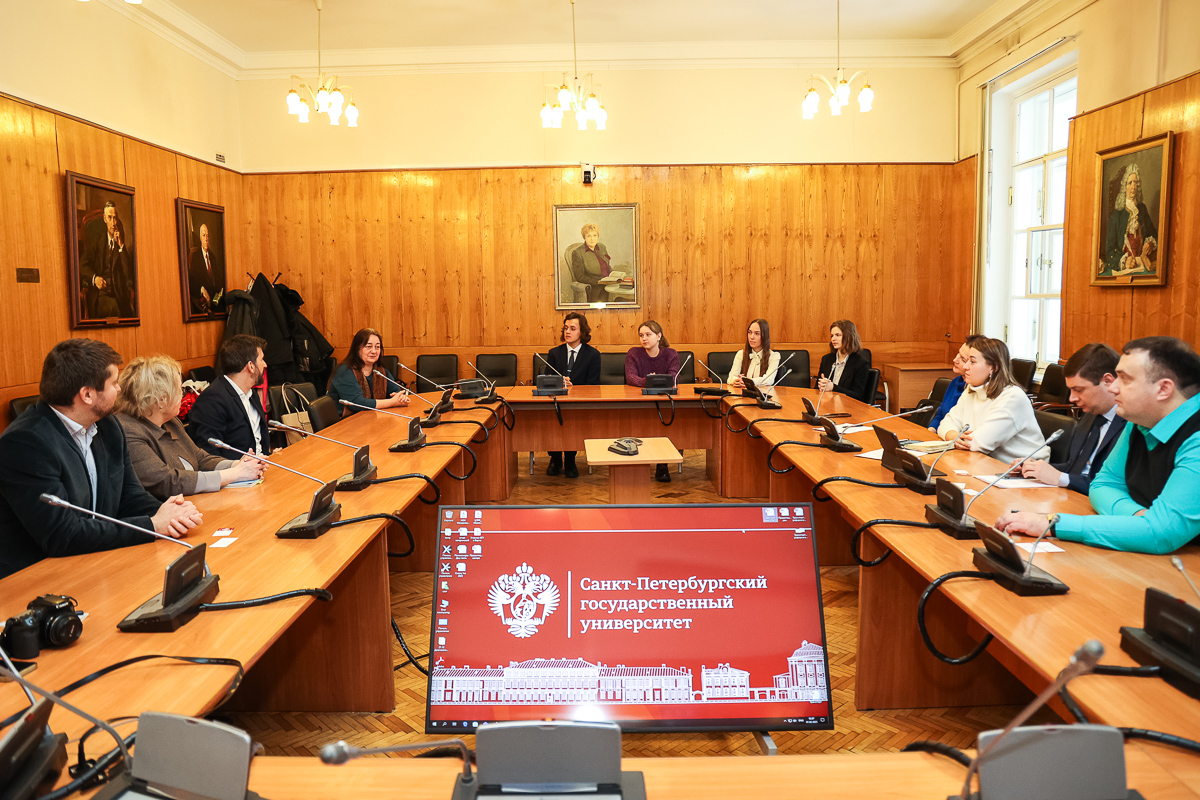Hungarian studies discussed at St Petersburg University in terms of development
St Petersburg University has been visited by: Consul, Deputy Head of Mission of the Consulate General of Hungary in St Petersburg; representatives of the Consulate General; and employees of the Hungarian Cultural Centre in Moscow ─ the Liszt Institute. During the meeting, the development of Hungarian studies at St Petersburg University and prospective strengthening of inter-university cooperation were discussed.
St Petersburg University and Hungary has been collaborating for many years. In 2016, as one of the oldest centres of Hungarian studies in Russia, St Petersburg University was allocated a grant to support Hungarian studies, under an agreement with the Ministry of Foreign Economic Relations and Foreign Affairs of Hungary. Thanks to close cooperation with the Consulate and the Embassy, the University managed to launch the academic programme "Culture and Art in Hungary". According to Sergey Andryushin, Vice-Rector for International Affairs at St Petersburg University, that support had a positive effect on attracting young people to Hungarian studies. Students’ interest in training at partner universities in Hungary and participating in international competitions is gradually increasing. Before the start of the pandemic, about 25 St Petersburg University students participated in academic mobility programmes annually, and St Petersburg University hosted an average of 15 students from Hungary.
’The dynamics of mobility is not bad. Yet, in order to strengthen academic networking with Hungarian universities, partnerships need to be expanded. I hope together we will be able to do that. The University is interested in cooperation and is ready to do a lot for its development,’ Sergey Andryushin said. ’Despite the challenging geopolitical situation, St Petersburg University continues its international activities and actively develops contacts with universities in other countries. Our scholars participate in conferences organised by European, American and Canadian universities, while various researchers from other countries participate in the University’s events in an online format.’
We always say that science and education should remain the bridge between peoples that will never collapse. Such a bridge makes it possible to restore networking and friendly interstate relations. I am sure one day that will happen, and our University, as always, will remain this linchpin.
Sergey Andryushin, Vice-Rector for International Affairs at St Petersburg University
The Vice-Rector noted that the community of University students who are interested in Hungary includes not only students of linguistics, but also students of law, sociology and international relations. The latter devote their graduation projects to Hungary—Russia relations and the ability of individual countries to defend their own national interests within the European Union. In this regard, he invited the Deputy Head of Mission to deliver an open lecture for students and teachers of St Petersburg University.
Olga Gégény, Consul, Deputy Head of Mission of the Consulate General of Hungary in St Petersburg, said that she also considered it important to maintain academic networking. ’We were very happy to learn that in September 2022 a total of eight applicants were enrolled in the Hungarian language programme. It is a great honour for us to cooperate with St Petersburg University. We will always be happy to foster our relations.’
András Márfi, Science and Education Attaché at the Embassy of Hungary, said that Hungary continue to implement the Stipendium Hungaricum scholarship programme in Russia and annually pays tuition fees of 200 Russian students enrolled in bachelor’s, master’s and postgraduate programmes at Hungarian universities. According to him, the collaboration between Hungarian and Russian higher education and research institutions continues, and St Petersburg University may also ask for help in establishing academic ties.
Sándor Kozlov, Director of the Liszt Institute and Cultural Advisor at the Embassy of Hungary in the Russian Federation, said that the Hungarian Cultural Centre was ready to act as a platform for cooperation. The Centre is open to initiatives from teachers and students of St Petersburg University. Despite the fact that, currently the logistical issues do not allow holding such large events as before the pandemic, since 2020 the Centre has been active in an online format. It is also eager to share useful materials with the University.
Education is still a priority in our interaction. We are open to dialogue. We welcome any cooperation in this area and are ready to hear your suggestions.
Sándor Kozlov, Director of the Liszt Institute and Cultural Advisor at the Embassy of Hungary in the Russian Federation
Mikhail Koryshev, Dean of the Faculty of Philology, spoke about the development of Hungarian studies at St Petersburg University. He confirmed that the interest in Hungary among University students is gradually increasing. The Hungarian language is learnt not only as the main foreign language, but is also included in the curricula of other academic programmes as an introductory course. ’Our joint undertakings in the field of science make me sure that in future our cooperation will be filled with new vibes not only in the field of philology, but also in other areas. We should also think about making sure that the training of students of the Hungarian department does not end with merely learning the language. Our students should be broadly educated in Hungarian studies and continue their training as master’s students,’ the Dean added. ’We are interested in creating joint academic programmes, with both a Russian and a Hungarian diploma issued upon their completion. In my opinion, the format of Hungarian studies programmes that is developing today will be favourable for that.’
Associate Professor Galina Zhukova, Director of the Academic Singing programme, also made some proposals for the development of cooperation. One of them was related to online vocal and instrumental concerts, as well as open lectures on cultural topics, organised at the Liszt Institute. ’There are many outstanding people and interesting parallels that would be great to discuss. For example, Arthur Friedheim, one of the most famous students of Franz Liszt and later his personal secretary, played an important part in the development of the American piano school. He studied at St Petersburg University for one year. It was he who was the teacher of Rildia O’Bryen Cliburn, the mother of the outstanding pianist Van Cliburn, who managed to unite the world in the Cold War era,’ Galina Zhukova noted.
She added that Hungarian students who wanted to get acquainted with the Russian violin and vocal schools or subsequently find a job at the Mariinsky Theatre might be interested in the following bachelor’s programmes: "The Instrumental Performance Practice: Violin"; and "Academic Singing". For those who would like to get a more in-depth education in the culture of Russia, the University can offer the master’s programme "Russian Culture (in English)".
The following issues were also discussed during the meeting: prospective areas for cooperation with Hungarian universities; potential ways of implementing academic mobility; and the creation of an online Hungarian language course for beginners at St Petersburg University. The students of the Hungarian department told the guests why they had chosen to learn the Hungarian language.


